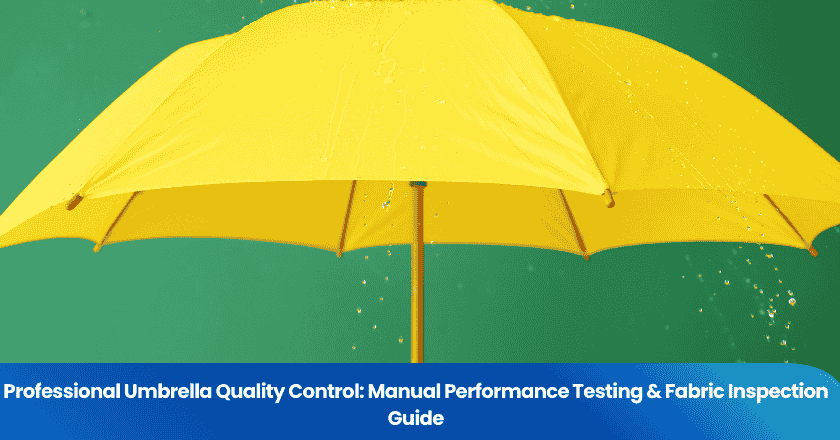
In today's rapidly changing business environment, enterprises are facing unprecedented competitive pressures and market demands. To ensure the quality of products or services, quality assurance (QA) has become an indispensable aspect. In recent years, outsourced quality assurance, as an efficient and flexible strategy, has increasingly gained favor among enterprises.
Behind this trend lies the urgent need for enterprises to reduce costs, improve efficiency, and access professional resources. Quality assurance is not only crucial for ensuring that products meet standards, but also serves as a vital cornerstone for enhancing customer satisfaction and bolstering brand credibility.
Exploring the applicability of outsourcing quality assurance and its considerations is of great significance for the long-term development of enterprises.
Factors to consider before outsourcing QA
We need to carefully explore several aspects that enterprises should carefully consider before deciding to outsource quality assurance (QA) services:
Differentiated needs of company size and industry characteristics:
Enterprises of different sizes and those in various industries exhibit differences in their quality assurance needs.
For small or start-up enterprises with relatively limited resources, outsourcing QA services often becomes a wise choice to alleviate internal management pressure and flexibly allocate resources. It can help these enterprises focus on the development of their core business while ensuring steady improvement in product quality.
On the contrary, large or mature enterprises may place greater emphasis on the construction and integration of internal QA teams, pursuing seamless collaboration and efficient communication among teams to maintain their extensive product systems and service quality.
In addition, specific industries such as finance and healthcare, due to their involvement in highly sensitive data processing and strict compliance requirements, must be particularly cautious when selecting outsourced QA services, ensuring that the outsourcing party possesses the appropriate data security qualifications and strict confidentiality mechanisms.
The delicate balance between cost and quality control:
Although outsourcing QA services is often regarded by enterprises as an effective means to reduce operating costs, blindly pursuing low costs may lead to compromises in quality, which may damage the brand image and customer trust of the enterprise in the long run.
When making outsourcing decisions, enterprises should comprehensively evaluate the delicate relationship between cost and quality. They should not only consider the immediate economic expenditure but also focus on the long-term value brought by outsourcing services.
This means that enterprises need to set clear quality standards and ensure that outsourced QA services can provide high-quality testing and feedback that meets or even exceeds internal expectations, thereby achieving a win-win situation of cost control and quality improvement.
Evaluation of professional expertise and comprehensive strength of potential partners:
When selecting an outsourced QA partner, enterprises should consider far more than just the price level. They should delve into the partner's professional capabilities, industry experience, and past successful cases.
This includes but is not limited to rigorous review of the outsourcing team's technical capabilities to ensure they possess the latest testing tools and technologies; assessment of the scientific and innovative nature of their testing methods to verify their ability to effectively address complex and ever-changing project requirements; and comprehensive evaluation of their problem-solving skills, specifically whether they can respond quickly and provide effective solutions in the face of unexpected situations.
Through comprehensive evaluation across these dimensions, enterprises can more accurately identify high-quality outsourcing partners that can truly enhance their product quality, laying a solid foundation for their long-term development.
Benefits of outsourcing quality assurance
The multifaceted positive impacts brought by outsourced quality assurance (QA) services to enterprises are specifically manifested in the following key areas:
Significantly save costs and optimize resource allocation:
Outsourcing QA services provides enterprises with an efficient and economical option, avoiding the high labor costs, training expenses, and daily operating costs associated with building a professional QA team in-house.
Strategies enable enterprises to invest their valuable capital and human resources more intensively in the development and innovation of their core businesses, thereby enhancing overall operational efficiency.
By outsourcing, enterprises not only achieve cost control but also facilitate the optimal allocation of resources, laying a solid foundation for their long-term development.
Easily access top talents and cutting-edge technologies worldwide:
Another significant advantage of outsourcing QA services is that it provides enterprises with access to top-tier QA experts and the latest technologies worldwide.
Outsourcing QA services enables enterprises to easily access top-notch QA experts worldwide and grasp the latest testing technologies, whether it's seeking experienced test engineers with specific industry expertise or innovative teams proficient in the latest testing tools and methodologies.
A global perspective and access methods are invaluable for enhancing product quality, accelerating technological innovation, and maintaining market competitiveness.
Significantly improve product quality and accelerate market response:
With profound testing experience and keen insight, our professional QA service team can identify and rectify potential issues in the early stages of product development, significantly reducing the defect rate after the product is launched.
Proactive quality control enhances the overall quality of products and also buys valuable market time for enterprises.
By accelerating product iteration, enterprises can respond to market demands more quickly, seize market opportunities, and thereby stand out in fierce market competition.
Outsourced QA services, characterized by their efficiency and professionalism, have become a crucial driving force for enterprises to enhance product quality and accelerate market response.
Challenges faced by outsourced QA
The challenges and potential risks that enterprises may encounter in the process of selecting outsourced quality assurance (QA) services provide comprehensive risk warnings and coping strategies for enterprises.
The dual challenges of communication barriers and time zone differences
Cross-regional outsourcing cooperation, while bringing talents and resources from around the world to enterprises, also poses communication challenges due to differences in language, culture, and time zones.
Language barriers may lead to inaccurate information transmission, cultural differences may cause comprehension deviations, and time zone differences may slow down the work pace, affecting the timely resolution of issues.
These factors collectively pose a significant challenge in outsourced QA cooperation, necessitating that enterprises establish efficient and flexible communication mechanisms to ensure accurate information transmission and prompt problem resolution.
Partial transfer of quality control rights and potential risks
Outsourcing QA services means that enterprises hand over some of their quality control rights to third parties, which weakens the direct control of product quality by the enterprise to a certain extent.
If outsourcing is not managed properly, such as lacking clear quality standards, effective supervision mechanisms, and timely feedback channels, it may lead to a decline in product quality or inconsistent standards, affecting the company's brand image and customer satisfaction.
When outsourcing QA, enterprises must establish strict quality control processes to ensure that the outsourced services meet or even exceed internal quality standards.
The severe challenges posed by security and confidentiality issues
For enterprises involving sensitive data or intellectual property, the security and confidentiality issues brought by outsourcing QA services are particularly prominent.
Whether the outsourcing provider possesses adequate data protection awareness and capabilities, and whether strict data confidentiality measures have been implemented, both directly impact the security and confidentiality of corporate information.
Once the data protection measures of the outsourcing provider are inadequate, it may lead to information leakage, causing immeasurable losses to the enterprise.
When selecting outsourcing providers, enterprises must conduct rigorous reviews and assessments of their confidentiality measures and data protection capabilities to ensure that the security and confidentiality of the enterprise's information are fully safeguarded.
Grow your business with TradeAider Service
Click the button below to directly enter the TradeAider Service System. The simple steps from booking and payment to receiving reports are easy to operate.





